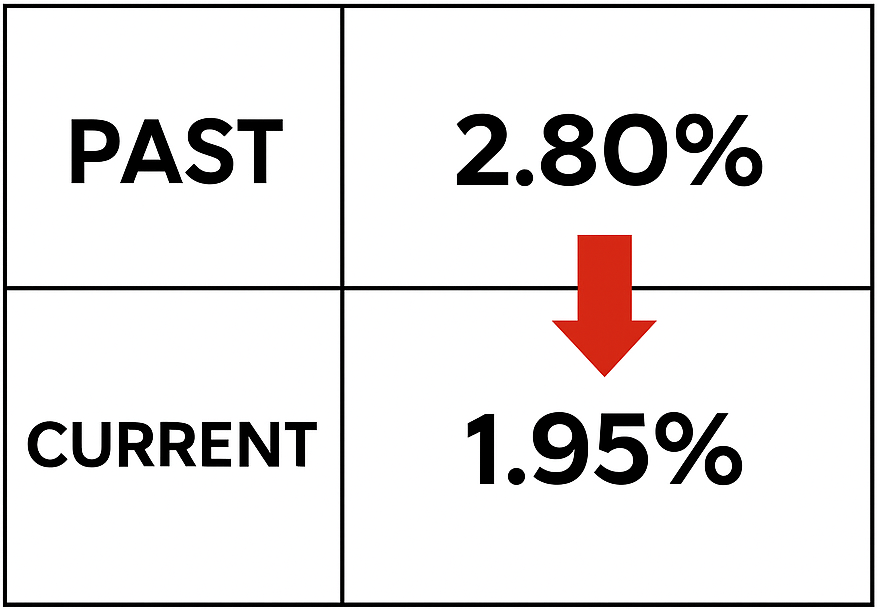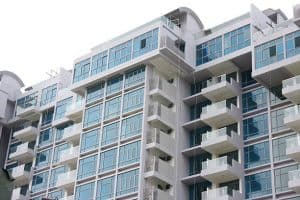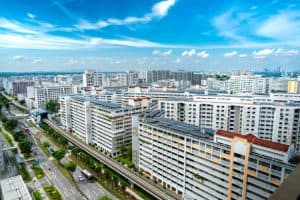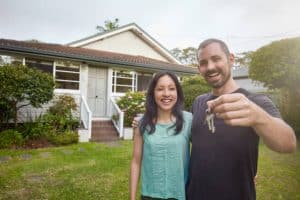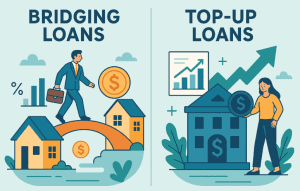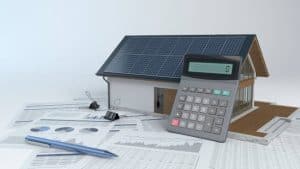Ever thought about buying a commercial property in Singapore — maybe a shophouse, a retail unit, or even a tiny office space? It sounds exciting, right? No ABSD, higher rental yield… sounds like a pretty good deal compared to residential.
But here’s the thing: while the rewards can be solid, the risks are very real. From stamp duties to renovation costs to getting a good tenant — it’s not as straightforward as it seems.
In this guide, I’ll walk you through what it really costs to buy commercial property in Singapore, the common traps to avoid, and whether the returns are actually worth it in 2025. So if you’re planning to invest or just curious how it all works, you’re in the right place.
What Types of Commercial Property Can You Buy in Singapore?
So, you’re thinking about dipping your toes into the world of commercial property in Singapore? You’re not alone. With no ABSD and the potential for better rental yields, it’s become a pretty popular move — especially in 2025.
But before jumping in, it helps to know what actually counts as commercial property here. Spoiler: it’s not just fancy offices in the CBD. From shophouses to strata shops, there are quite a few options — and each comes with its own rules.
What qualifies as commercial property in 2025?
In Singapore, these are the most common types of commercial property:
- Retail units (e.g. strata shops in malls)
- Offices (strata-titled, CBD or suburban)
- Shophouses (zoned fully commercial, conserved or otherwise)
Mixed-use units that include residential zoning don’t count. They come with more restrictions, and often trigger ABSD.
Tip: Always check URA zoning status before buying — not all shophouses are 100% commercial. If in doubt, get help from a Singapore mortgage broker.
Can locals, PRs, foreigners or companies buy them?
Here’s one big perk of buying commercial property: it’s open to almost everyone.
Ownership Eligibility for Commercial Property in Singapore (2025)
| Buyer Type | Eligible to Buy? | Government Approval Needed? |
|---|---|---|
| Singapore Citizens | Yes | No |
| Singapore PRs | Yes | No |
| Foreigners | Yes (fully commercial only) | No (Unless Landed) |
| Local Companies | Yes | No |
| Foreign Companies | Yes (depends on usage/zoning) | No |
How is commercial property treated differently from residential?
The rules and financing structure are quite different once you go from buying a home to buying a commercial space.
Key Differences Between Residential and Commercial Property in Singapore (2025)
| Aspect | Residential Property | Commercial Property |
|---|---|---|
| Stamp Duties | ABSD + BSD | Only BSD |
| Loan Eligibility | TDSR + MSR apply | TDSR/MSR not required (but LTV lower) |
| CPF Usage | Allowed | Not allowed |
| Grants | Yes (e.g. EHG, PHG for HDB) | None |
| Ownership Restrictions | Yes (esp. foreigners) | Very few (if fully commercial) |
| Rental Yield (2025 est.) | ~2%–3% | ~3%–5% |
Expert tip: Since you can’t use CPF, commercial buyers should always run the numbers ahead of time with a mortgage loan repayment calculator.
Upfront Costs You Must Prepare For in 202
Let’s be real — buying commercial property in Singapore isn’t cheap. Beyond the listed price, you’ll need to fork out for taxes, legal fees, and some sneaky little extras that can really add up. And unlike residential purchases, there are no grants or CPF savings to help you out.
The good news? If you know what to expect, you won’t be caught off guard. Here’s what to budget for in 2025.
How much stamp duty, GST and SSD must buyers pay?
When buying commercial property, you won’t have to deal with Additional Buyer’s Stamp Duty (ABSD) — and that’s a huge plus. But there are still other taxes you’ll need to account for:
Stamp Duty & Tax Costs for Commercial Property Buyers (2025)
| Tax Type | Rate/Rule |
|---|---|
| Buyer’s Stamp Duty (BSD) | 1% on first $180k, 2% on next $180k, 3% on next $640k, 4% on remaining amount |
| Goods & Services Tax (GST) | 8% (if seller is GST-registered) |
| Seller’s Stamp Duty (SSD) | Only applies to industrial property (not commercial) |
Want to estimate your stamp duty ahead of time? Try our BSD calculator for quick results.
What are the typical legal, valuation and other transaction costs?
Besides taxes, you’ll also need to factor in transaction-related costs. These can vary depending on whether you’re buying a strata office or a multi-million dollar shophouse.
Estimated Legal & Transaction Costs (2025)
| Cost Item | Estimated Range (SGD) |
|---|---|
| Legal Fees | $3,000 – $10,000 |
| Valuation Report | $500 – $2,000 |
| Caveat Lodgement | ~$64 (IRAS) |
| Renovation/Fit-Out Budget | Varies — plan $50k+ for older units |
| MCST/Admin Fees (Strata) | ~$50–$150/month (if applicable) |
Tip: These are upfront costs — not spread out. Make sure your financial buffer includes them.
When are these costs due — and what is the payment timeline?
Timing matters. Some payments are made upfront, while others are due upon completion. Here’s a quick rundown.
Commercial Property Payment Timeline for Buyers (Singapore 2025)
| Milestone | What You Pay | When |
|---|---|---|
| Offer Accepted | 1% Option Fee | Day of acceptance |
| Option Exercised | Additional 4% (Exercise Fee) | Within 14 days |
| Buyer’s Stamp Duty (BSD) | Based on purchase price | Within 14 days of exercise |
| Legal & Valuation Fees | As invoiced | Varies — during transaction |
| GST (if applicable) | 8% of property price | On completion |
| Completion | Balance 95% + misc. fees | Typically 8–12 weeks from OTP |
Pro tip: Use a mortgage loan repayment calculator to plan your cash flow, especially if you’re financing part of the purchase.
Commercial Property Cost Breakdown in 2025 (With Example)
Trying to wrap your head around the actual cost of buying a commercial unit in Singapore? You’re not alone. Between taxes, legal fees, and renovation works, the final number can be a lot higher than the property listing price.
Let’s break it down using a S$2 million example — a common price range for many commercial buyers in 2025.
What’s the total cost of a S$2M commercial property purchase?
Here’s a real-world example to show what buying a S$2 million commercial property might cost after all the extras.
Total Estimated Cost for a S$2M Commercial Property in Singapore (2025)
| Cost Component | Estimated Amount (SGD) |
|---|---|
| Purchase Price | $2,000,000 |
| Buyer’s Stamp Duty (BSD) | ~$74,600 |
| Legal Fees | ~$5,000 |
| Valuation Fee | ~$800 |
| GST (if seller is GST-registered) | $160,000 (8% of $2M) |
| Renovation/Fit-Out Budget | $50,000–$100,000 (depending on condition) |
| MCST/Admin Fees (if strata) | ~$600–$1,000/year |
| Total Estimated Cost | ~$2.29M – $2.34M |
Curious how interest rates and loan principal affect your monthly costs? Check out our guide on understanding loan principal & bank interest rates in Singapore.
How do freehold vs strata commercial properties compare in costs?
Not all commercial properties are created equal — and neither are their cost structures. Freehold shophouses and strata-titled retail units often carry very different obligations.
Freehold vs Strata Commercial Property: Cost Comparison (2025)
| Cost Factor | Freehold (e.g. Shophouse) | Strata-Titled Unit |
|---|---|---|
| Upfront Price (psf) | Higher (~$4,500–$8,000+) | Lower (~$2,000–$4,500) |
| GST Payable? | Yes, if seller is GST-registered | Same applies |
| MCST / Management Fees | None (owner-maintained) | Yes (~$50–$150/month) |
| Renovation Responsibility | Full (entire unit) | Shared areas covered by MCST |
| Long-term Appreciation | Typically stronger (limited supply) | More price variation by building |
Need help choosing between fixed or floating interest packages? Our guide on comparing home loan rates in Singapore for 2025 makes it a lot easier.
Which costs are recoverable (e.g. GST) if bought via company?
If you’re buying under a business entity, there’s a chance to recover some costs — especially GST — but only if your company is GST-registered.
Recoverable Costs When Buying Commercial Property Through a GST-Registered Company
| Cost Item | Can You Claim? |
|---|---|
| Goods & Services Tax (GST) | Yes, if company is GST-registered |
| Buyer’s Stamp Duty (BSD) | No |
| Renovation/Fit-Out Costs | Yes (if directly used for business) |
| Legal/Professional Fees | Partially, depending on usage |
| Interest on Commercial Loan | Yes, if property is for business use |
To structure your mortgage smartly and minimise out-of-pocket expenses, check out our latest list of mortgage lenders with the lowest interest rates in Singapore.
Financial Commitments & Loan Pitfalls to Avoid
Commercial properties may offer higher rental yields, but let’s not sugarcoat it — the financial commitment is a whole different ball game compared to residential.
If you’re planning to take a loan, you’ll need more upfront cash, face stricter terms, and be prepared for greater risk. One bad tenant or empty unit, and you’re suddenly holding a liability.
Let’s walk through what to expect and what mistakes to steer clear of in 2025.
How much upfront cash is needed for financing in 2025?
For commercial property, banks typically offer up to 70% loan-to-value (LTV) — sometimes 75% for strong profiles, but rarely higher. That means you’ll need to fork out at least 25% to 30% cash upfront, and none of it can be paid with CPF.
You’ll also need to cover:
- Legal fees
- Valuation
- Stamp duty
- GST (if applicable)
On a $2M property, you’re looking at around $600K+ in total upfront cash.📌 Want to crunch your actual figures? Try our mortgage loan repayment calculator to see what your monthly loan looks like.
Why commercial property loans carry higher risk than residential
Let’s be real — the bank views commercial loans as riskier, and for good reason.
- No Total Debt Servicing Ratio (TDSR) limit, but they’ll scrutinise your cash flow and credit history more tightly.
- Loan tenure is shorter (typically capped at 15–20 years).
- Interest rates are higher than residential loans.
- Most importantly: If your tenant defaults or you face a vacancy, you still have to pay the bank.
💡 If you’re new to this space, it’s worth speaking with a Singapore mortgage broker to assess your affordability and structure the loan well from day one.
What happens if you default or can’t meet repayments?
What happens if you default or can’t meet repayments?
Missing repayments on a commercial property loan can escalate fast. Unlike residential, there’s no HDB protection or early intervention schemes.
Here’s what typically happens:
- You’ll be charged late payment interest (which can compound quickly).
- The bank may issue a Letter of Demand.
- In prolonged default, the bank can foreclose and auction your property.
- And yes, it affects your credit rating, making future borrowing harder.
🧠 Tip: If you’re struggling with payments or foresee issues ahead, check out your options for refinancing your commercial property loan early — don’t wait till it’s urgent.
Key Risks of Buying Commercial Property (2025 Matrix)
Commercial property can be a great long-term investment — but only if you know what you’re getting into. Beyond the purchase price, there are hidden landmines that can catch even seasoned investors off guard.
Here’s a breakdown of the top risks every buyer should understand before committing in 2025.
Prolonged vacancy and inconsistent rental income
Unlike residential units (which are in constant demand), commercial spaces don’t rent out as easily. It’s not uncommon to face 3–6 months of vacancy, especially for retail or office units in non-prime locations.
Even with tenants, you might encounter:
- Irregular payment patterns
- Requests for rent-free fit-out periods
- Shorter lease terms with break clauses
That means if you’re relying on rental income to service your commercial property loan, you need strong cash buffers — just in case.
URA zoning, usage limitations and renovation constraints
Not every “commercial” space is the same. Depending on URA zoning, you might be limited in what kind of business activities can take place in the unit.
Common issues include:
- Not being able to convert from retail to F&B
- Restrictions on subdividing or renovating the space
- Fire safety and URA change-of-use approvals that delay opening
🧠 Tip: Before you commit, always check the URA Master Plan and ask your agent for the property use class and zoning history. Better yet, verify with URA directly.
Interest rate hikes and liquidity pressure in tight markets
Loan rates for commercial properties tend to be less stable than residential. A sudden interest rate jump can raise your monthly repayments dramatically, making cash flow tight—especially if rent lags behind or you need to sell in a cooling market.
Risk Matrix: Key Challenges for Commercial Buyers in 2025
| Risk | Likelihood | Impact | How to Mitigate |
|---|---|---|---|
| Prolonged vacancy | Medium | High | Pre-screen tenants; build contingency rental buffers |
| Zoning & renovation restrictions | Low to Medium | High | Check URA Master Plan; validate permitted use |
| Rate hikes & liquidity pressure | High | Medium–High | Fix your interest rate early; maintain cash reserves |
Personally, I found it super helpful to read up on how loan interest really works before diving into any purchase. This guide on understanding loan principal and interest rates broke things down in a way that actually made sense — no jargon, just straight talk.
What Returns Can You Expect in 2025?
Let’s be real — nobody buys a commercial property just for fun. We’re all hoping for returns, whether that’s rental income, capital gains, or ideally both.
But in 2025, returns aren’t quite what they used to be. With interest rates staying relatively high and tighter liquidity across the board, margins can get squeezed if you’re not careful. That said, if you pick the right asset, there’s still decent upside — you just need to go in with eyes open.
What are the average rental yields for different asset types?
Rental yields vary quite a bit depending on the property type and location. Here’s a quick snapshot of what’s realistic in mid-2025:
Average Commercial Rental Yields by Asset Type (2025)
| Asset Type | Yield (Avg) | Remarks |
|---|---|---|
| Shophouses (CBD fringe) | 2.8%–3.5% | High demand, but low yields due to premium prices |
| Office strata units | 3.5%–4.2% | Stronger rental recovery post-pandemic |
| Industrial B1/B2 units | 4.5%–6.2% | Higher yields, but some zoned for limited use |
| Retail units (mall strata) | 2.0%–3.0% | Risk of footfall drops unless in prime locations |
From my own experience, industrial units tend to offer the best rental yield bang for your buck — but they’re not always the easiest to exit when you want to sell.
Is capital appreciation still viable in this climate?
Capital gains are a bit trickier now. With commercial prices largely stabilised post-2023, appreciation will depend a lot on:
- Location (city fringe is still strong)
- Supply pipeline (watch for oversupply in certain B1 zones)
- Upgrades or repositioning (especially for older shophouses)
Personally, I wouldn’t bank on fast appreciation in 2025. Instead, I’d focus on buying below valuation and locking in a good lease. That gives you room for long-term growth — without stressing about short-term resale profits.
💡 If you’re deciding between capital gain potential or immediate yield, this guide on how to compare mortgage loan structures helped clarify what worked better for my own risk appetite.
How do commercial returns compare to residential in 2025?
Right now, residential yields are hovering around 2%–3%, especially with ABSD eating into gains. In contrast, commercial units offer yields closer to 4%–6%, depending on the asset class.
But remember: higher returns = higher risk.
For instance, while a warehouse in Woodlands may give you a 6% yield, you’ll probably face more vacancy downtime than with a residential HDB flat. You’ll also need to budget more upfront cash — no CPF allowed, and commercial loan terms are stricter.
If you’re comparing both side-by-side, this post on HDB vs bank loan pros and cons offers a solid breakdown — even if it’s residential-focused, it gives useful context on financing gaps.
Common Mistakes Commercial Buyers Make
Let’s be honest — buying commercial property isn’t like buying a condo. There are a lot more moving parts, and the biggest mistakes tend to show up after you’ve signed the dotted line.
If you’re new to the game, here are a few pitfalls I’ve seen (or made myself) that are totally avoidable — once you know what to look for.
Skipping URA due diligence or ignoring zoning limitations
It sounds obvious, but many buyers skip checking URA zoning rules. Just because a unit looks like it can be used for F&B or retail doesn’t mean it’s actually approved for it. One buyer I met assumed a shophouse could house a cafe — only to learn too late that the site didn’t allow it.
Always check:
- Land zoning (Commercial, Industrial, White sites, etc.)
- Approved usage (office, F&B, medical, retail)
- Whether change-of-use permission is needed
The URA Master Plan is your best friend here. Better to spend 30 minutes doing this than months stuck with a unit you can’t fully use.
Underestimating vacancy risk or relying on 1 anchor tenant
It’s tempting to buy into a commercial space that already has a long-term tenant — especially if it’s a big name. But if you rely entirely on that one tenant for cash flow, you’re taking a bigger gamble than you think.
All it takes is:
- A lease break
- Business closure
- Or shifting market demand
And suddenly your unit is vacant… and still incurring costs. I always suggest having at least 6 months of loan repayment buffer, especially if you’re going with a commercial property loan that has higher interest rates and shorter terms.
Buying without understanding tenancy contracts
This one is huge. Commercial tenancy agreements aren’t like residential leases. They often include:
- Break clauses
- Reinstatement clauses
- Service charges that eat into your net yield
If you’re buying a tenanted unit, always get a lawyer or broker to walk you through the tenancy agreement. I’ve seen cases where the lease terms made the property far less attractive once all the fine print was revealed.
For a deeper look into legal and financial implications, this guide on mortgage refinancing and lock-in clauses explains why understanding the fine print matters — even if it’s for loans, the mindset applies.
Must-Do Checks Before You Commit to a Commercial Unit
Before you get too excited and throw in an offer — slow down a bit. Commercial property isn’t a casual purchase. One missed clause or zoning issue could cost you way more than you expected.
This section covers the essential checks and steps I wish more first-time commercial buyers took seriously. Whether you’re buying a shophouse or a B1 industrial space, do these before signing anything.
What documents must you review before offering?
It’s not just about the price. Before you commit to a unit, here’s what you must ask to see:
- Title deed – Confirms ownership and any encumbrances (e.g. caveats, mortgages)
- Tenancy agreement (if tenanted) – Watch for expiry dates, break clauses, reinstatement terms
- Property tax history – Reveals actual annual tax payable and AV (Annual Value)
- URA zoning & usage approval – Always check that the intended business activity is permitted
- MCST or strata minutes (if applicable) – Flags any upcoming special levies or legal disputes
If you’re unsure about any of these, this is where a Singapore mortgage broker or commercial agent can help decode the legal-speak. Don’t DIY what you don’t fully understand.
What’s the step-by-step purchase timeline?
The commercial buying process is slightly different from HDB or condo transactions. Here’s a simple overview of what to expect:
Commercial Property Purchase Timeline (Singapore, 2025)
| Stage | Action | Timeline |
|---|---|---|
| Offer & negotiation | Sign LOI, pay option fee (1% of purchase price) | Day 1–3 |
| Due diligence | Review documents, secure financing | Day 4–14 |
| Exercise Option to Purchase | Pay balance of deposit (typically 9%) | By Day 14 |
| Legal & valuation work | Conveyancing, caveat lodgment, bank valuation | Day 14–45 |
| Completion | Transfer ownership, stamp duty payment | ~8–10 weeks from OTP |
Tip: Unlike HDB, there’s no standardised timeline, so always negotiate clear deadlines — especially for completion and vacant possession.
Should you hire a mortgage or commercial advisor?
In one word: yes.
Commercial loans are a different beast. You’ll deal with stricter loan-to-value limits, shorter tenures, and no CPF usage. Having an advisor — especially a good mortgage consultant — can save you both time and costly mistakes.
I once tried comparing bank loan offers manually… never again. If you want someone to find a mortgage agent who already knows which banks are more aggressive with commercial lending in 2025, trust me — it’s worth it.
Final Thoughts: Is Commercial Property Worth It in 2025?
If you’re eyeing commercial property in Singapore, here’s the bottom line: it can be a smart play — but only if you walk in with your eyes wide open.
From navigating high upfront costs to dealing with tenant turnover and interest rate risks, buying a commercial unit isn’t just a property move — it’s a business decision. But with the right due diligence, a solid loan plan, and realistic yield expectations, the rewards can outweigh the risks.
And hey, you don’t have to figure it all out alone. A good Singapore mortgage broker can help you compare rates, understand your financing options, and avoid common pitfalls — especially if it’s your first time diving into the commercial game.


